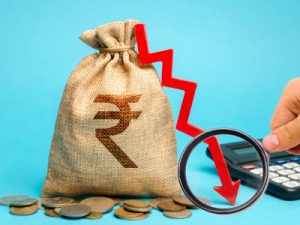What is Repo Rate and How Does it Affect You?
The term ‘repo rate’ has been in the news quite frequently but are we really aware of its meaning and how it impacts our finances?
Allow us to break it down for you!
What is Repo Rate

Simply put, ‘repo rate’ (short for Repurchase Agreement or Repurchasing Options) refers to the interest rate at which the Indian Central Bank which is the Reserve Bank of India (RBI), lends money to commercial banks.
When we avail loans from banks, this comes at a cost which is usually referred to as ‘interest rate’. This also the case when it comes to commercial banks borrowing from the RBI, which is where the repo rate comes in.
The current repo rate is 6.25%.
Commercial banks obtain loans by selling qualifying securities to the RBI. Therefore, these commercial banks get the cash and the RBI will have the securities in its possession.
In circumstances where the market is volatile or the banks are short on funds, these securities would be repurchased at a predetermined rate.
Repo rate is incredibly important because it is one of the ways for the RBI to keep inflation in check.
Suggested Reading: A basic Guide to Inflation
Who Determines the Repo Rate?
The repo rate is decided by the MPC or Monetary Policy Committee which is chaired by the Governor of RBI. This is a 6 member committee constituted by the Central Government of India.
Impact on the Economy

One of the most powerful tools in its arsenal, repo rates are used by the RBI to restrict and balance the flow of money in the market. When inflation starts to affect our economy, the repo rate is increased.
This will have an impact on the lending industry as a whole as borrowing becomes more expensive for individuals and businesses. As a result, economic growth slows down, reducing the flow of money in the market which helps to control inflation.
On the other hand, during times of recession when the economy is slowing and markets are stagnating, the RBI reduces repo rates.
When loans become cheaper, businesses and individuals are encouraged to avail loans and invest more. This in turn increases the flow of money into the market, boosting the economy.
How Does it Affect You

A rise or fall in the repo rate has an impact on you, as a borrower and investor.
Loans, including personal loans, are one of the primary instruments affected by repo rates. When the repo rate rises, the cost of borrowing for commercial banks increases. Therefore the interest rates for all loans will usually see a rise making EMIs slightly dearer.
If you are someone who relies heavily on FDs in your investment portfolio, then a rise in the repo rate will be beneficial for you as there will be an increase in FD interest rates.
However, the stock market is inversely related to repo rates. A rise in repo rates will slow down business expenses and investments. This in turn will reduce the growth of the economy, negatively impacting profit in most cases and will ultimately result in stock prices falling.
What Can You Do

Repo rates will impact loans and investments. If you are looking to borrow a loan, especially a home loan, there is a good chance that you will have to shell out more if there is an increase in the repo rate.
Additionally, while FD holders will benefit, stock investors will feel the pinch. This is why it is important to not just invest but ensure a diverse portfolio. As the old saying goes ‘Don’t put all your eggs in one basket’. Diversification will save your investments from inflation and other market fluctuations.
Repo rates are utilized by the government to control inflation and stabilize the economy. It is important to understand how this works so that the impact on your finances can be managed.
Has the rise in the repo rate impacted you personally? How did you deal with it? Let us know in the comments below!